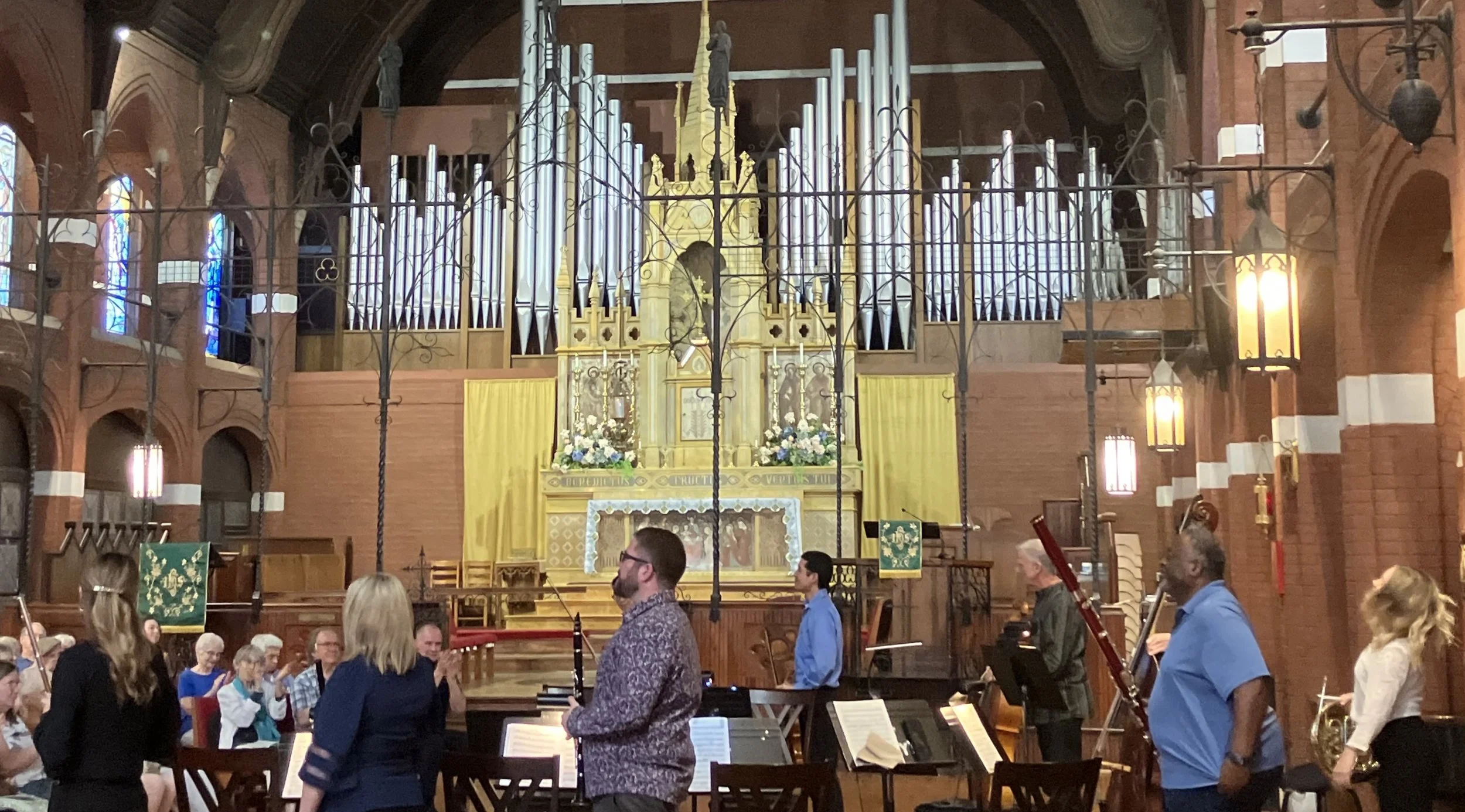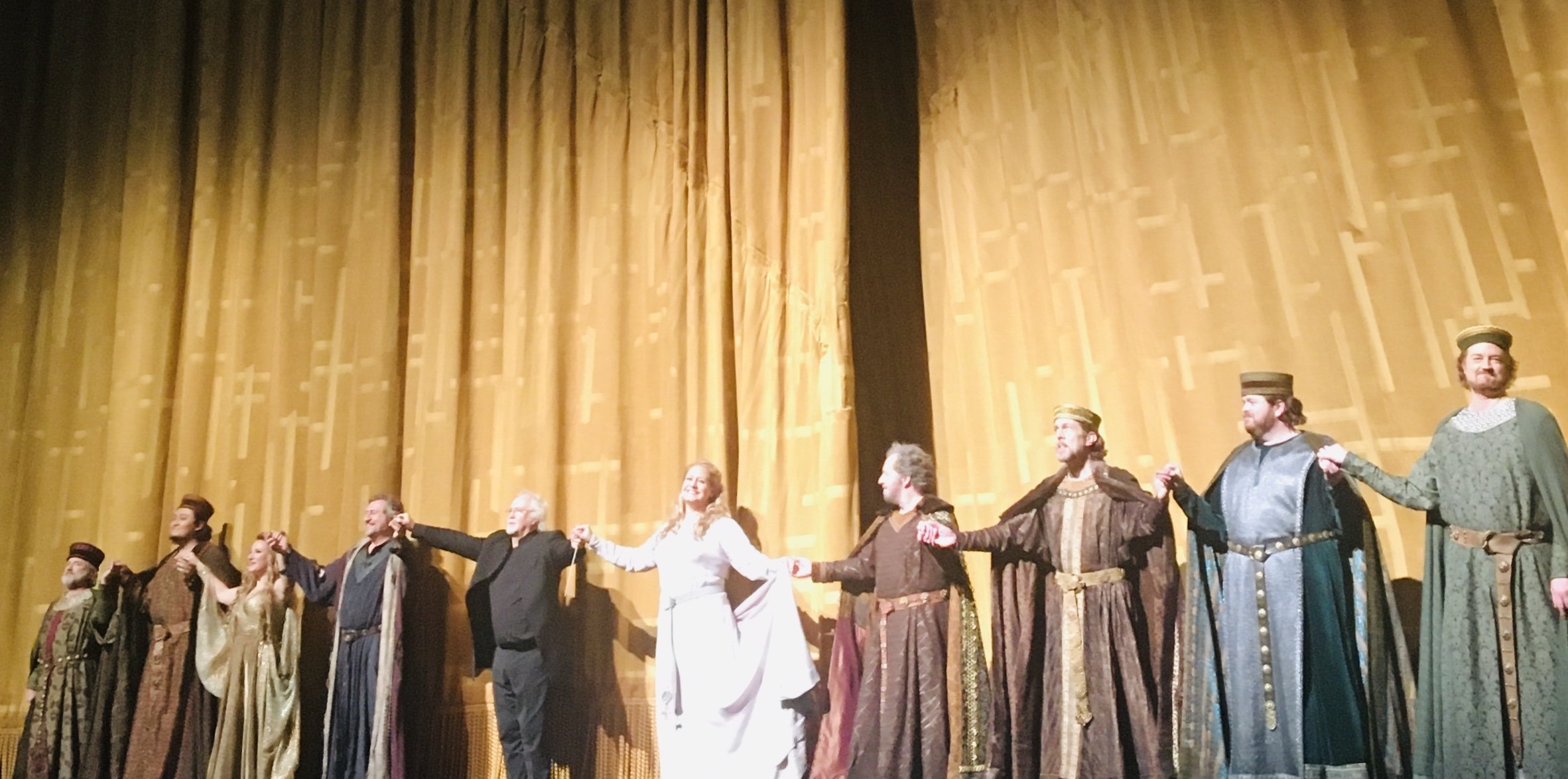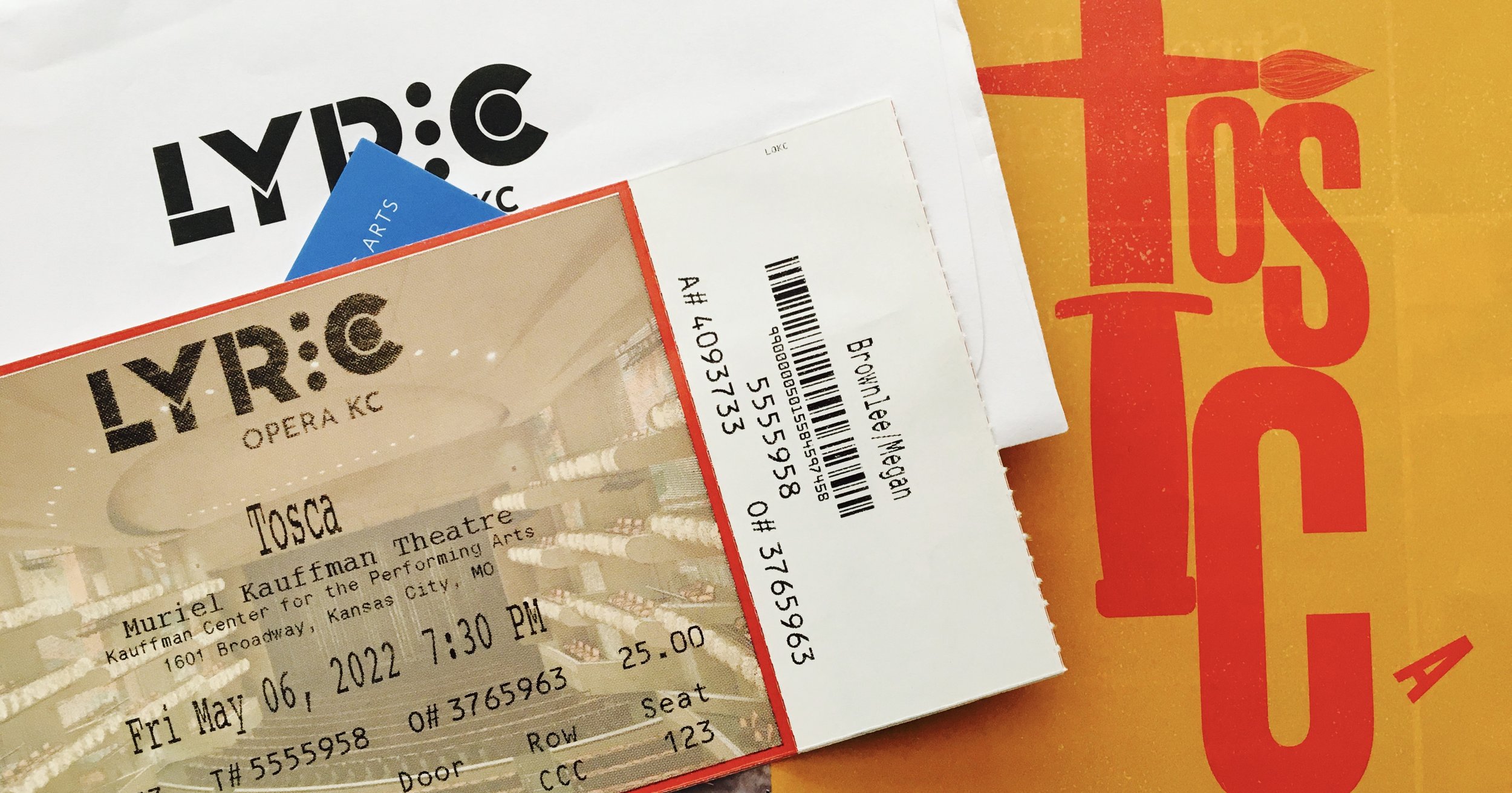Original image by There Stands the Glass.
Never in my history of live music attendance had I bungled a date or venue. In fact, I’ve tended to show up early for each of the more than one hundred performances I’ve caught every year since 1995 (pandemic period excepted). That pristine record came to an end last weekend.
I was giddy upon learning of a local production of Richard Wagner’s “Die Walküre.” A full performance of a Wagner opera- even in a semi-staged version- hasn’t transpired in Kansas City in years. I packed a libretto from my library of opera literature and a cooler full of snacks and cold drinks. Including two intermissions, “Die Walküre” lasts six hours.
I knew something was wrong when the parking lot at St. Mary’s Episcopal Church was almost empty on Sunday, July 27. Musicians at the entrance told me I was 75 minutes early. I was further puzzled because the music being rehearsed clearly wasn’t the sturm und drang of Wagner.
An event organizer explained that “Die Walküre” was performed at the church the previous day. He kindly invited me to stick around for Summerfest’s final recital of the season.
Works by Guillaume Connesson, Charles Koechlin, Elizabeth Brown and Bohuslav Martinů were rendered by prominent Kansas City classical musicians. Although I was rattled by my uncharacteristic cognitive slip, I was glad to be among an audience of more than 100 hear to the esoteric compositions.










